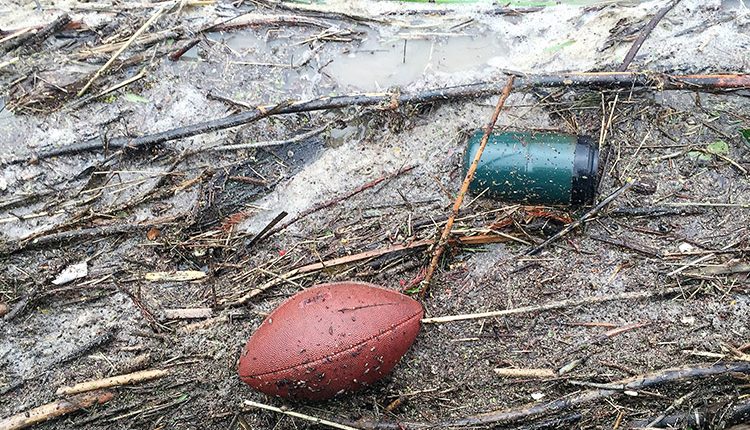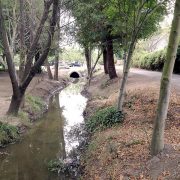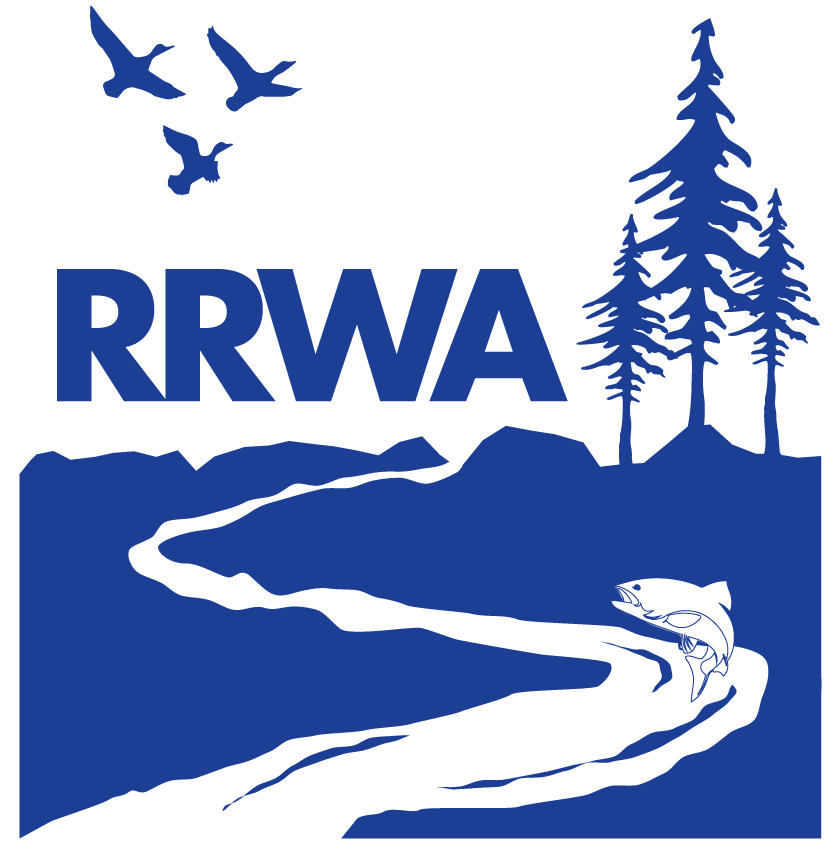Prepare for the Rainy Season
With fall comes back to school, football, shorter days, and falling leaves. Unfortunately, fall also means clogged roof gutters and drain inlets, irrigation water wasted on a landscape that is already wet, and trash, pollutants and other contaminants flowing with rain water into our local creeks.
Storm water flows over the landscape and into a storm drain—collecting fallen leaves, litter, pet waste, and other pollutants along the way. Anything that flows into a storm drain enters our local creeks, streams and rivers without any treatment. Pollutants in storm water can have a harmful effect on fish and wildlife.
Fall is a great time to prepare your home and garden for the rainy season. Check your irrigation system for leaks and repair any to save water. Turn off your irrigation system for plants that don’t require extra water in the wet season, or reduce irrigation times. Properly store and dispose of fertilizers and pesticides for lawns or gardens; If not properly managed, they can end up in our storm water, storm drains, and creeks.
Additional things you can do to protect storm water:
- Rake up any fallen leaves, vegetation and dispose properly—or better yet compost!
- Sweep up dirt and debris from sidewalks, driveways and other hardscapes where rain runoff may flow.
- Upgrade your irrigation system to a SMART controller which automatically adjusts the amount of time your irrigation system runs based on weather, soil and other conditions.
- Store indoors or correctly cover fertilizers, paints and other chemicals you may have stored or used over the summer.
- Install a rain harvesting system such as a rain barrel.
- Install a rain garden or swale to collect and infiltrate your rain water on site.
For more information on ways to reduce storm water pollution, view the Urban Creek Care Guide at www.rrwatershed.org
Storm water can carry many things that can impact our watershed. By improving your irrigation efficiency, adjusting irrigation based on the needs of plants, properly disposing of litter, leaves, dirt and other materials, and preparing for the rainy season, you can save water and help protect our local creeks and the Russian River.




